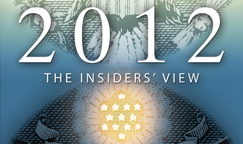A study in Addiction Biology of smokers’ brain activity has found that graphic anti-smoking warning labels that produce a strong emotional response are effective at deterring the urge to smoke, according to researchers at the Annenberg Public Policy Center and the Perelman School of Medicine at the University of Pennsylvania.
Michael Rozansky
Director of Communications, APPC

Michael Rozansky has worked as an editor, writer and reporter for 30 years. Before joining the Annenberg Public Policy Center as director of communications, he spent more than 20 years at the Philadelphia Inquirer, most recently supervising its arts and entertainment coverage. He has reported on the arts, media, business, politics, national and regulatory issues. Rozansky also developed and taught a class at Temple University on the history and practice of celebrity journalism. He received a bachelor’s degree in English and American literature from Brown University and a master’s degree in journalism from Columbia University’s Graduate School of Journalism.
Biggest Deceptions of 2013
It's that time of year again: Time to look back at some of the year's biggest deceptions. The award-winning site FactCheck.org and its companion site, FlackCheck.org, offer a rundown and video looking at some of the year's biggest whoppers. No surprise: Some of them centered on the Affordable Care Act. But FactCheck.org also found noteworthy nonsense about immigration, gun control, Benghazi and the IRS.

Annenberg Classroom documentaries win CINE Golden Eagle awards
Annenberg Classroom’s documentaries “The Right to Remain Silent: Miranda v. Arizona” and “Search and Seizure: Mapp v. Ohio” have received the CINE Golden Eagle Award. The 25-minute film “The Right to Remain Silent” details the U.S. Supreme Court case of Miranda v. Arizona, the landmark decision that ensured the right to consult an attorney and
Annenberg arts fellow Richard Mosse honored by Foreign Policy as ‘Global Thinker’
Photographer and filmmaker Richard Mosse, a 2008 Leonore Annenberg Arts Fellow, has been named one of Foreign Policy magazine’s “Leading Global Thinkers” of 2013. Mosse is featured for his innovative photographic vision among some of the world’s most influential people, including German Chancellor Angela Merkel, Secretary of State John Kerry, Facebook founder Mark Zuckerberg, and Pope Francis.
The myth connecting suicide to the holidays persists
Nearly three-quarters of the newspaper stories mentioning suicide and the holidays over the 2012-2013 holiday period perpetuated the myth that more people commit suicide during that season, according to an analysis by the Annenberg Public Policy Center.
Movie violence associated with sex, alcohol and tobacco use
Nearly 90 percent of the top-grossing movies over a 25-year period show main characters acting violently, and in 77 percent of the movies those characters also engage in sex-, alcohol- or tobacco-related behavior, a new study has shown. The study published in Pediatrics, by researchers at the Annenberg Public Policy Center, found that more than half of the biggest PG-13 movies featured a main character acting violently and involved in either drinking, sexual behavior or smoking within a five-minute segment.

Could Lincoln Be Reelected Today?
Could Lincoln be reelected today? What sort of attack ads might he encounter? What deceptive ads, false claims, and out-of-context quotations might the Illinois Republican face from the likes of Democratic nominee Gen. George B. McClellan and third-party Super PACs? Using a variety of political-campaign techniques, along with parody and humor, FlackCheck.org has reconceived the bruising 1864 campaign in a video timeline.
More gun violence in top PG-13 movies than in biggest R-rated films
The amount of gun violence in the top-grossing PG-13 movies has more than tripled since 1985, and in 2012 it exceeded the gun violence in the biggest R-rated movies, according to researchers at the Annenberg Public Policy Center and the Ohio State University. The overall rate of violence in the biggest box-office movies has more than doubled since 1950, the researchers report in "Gun Violence Trends in Movies," published in Pediatrics.

‘Electing the President 2012’ offers behind-the-scenes look at campaign
“Electing the President 2012,” published by the University of Pennsylvania Press, offers a behind-the-scenes look at campaign strategy and analysis from the insiders who ran the campaigns of President Barack Obama and his Republican challenger, Mitt Romney. The book captures a daylong closed-door campaign debriefing at the Annenberg Public Policy Center on Dec. 6, 2012, a month after the election, with top campaign strategists who spoke freely and questioned each other about their decisions.
How campaign micro-targeting affects fact-checking of political ads
In "Messages, Micro-targeting, and New Media Technologies," published in The Forum in October, Kathleen Hall Jamieson writes that the trend in politics of micro-targeting ads toward individual voters makes it more difficult for reporters and scholars to know "who is saying what to whom, where and with what effect."